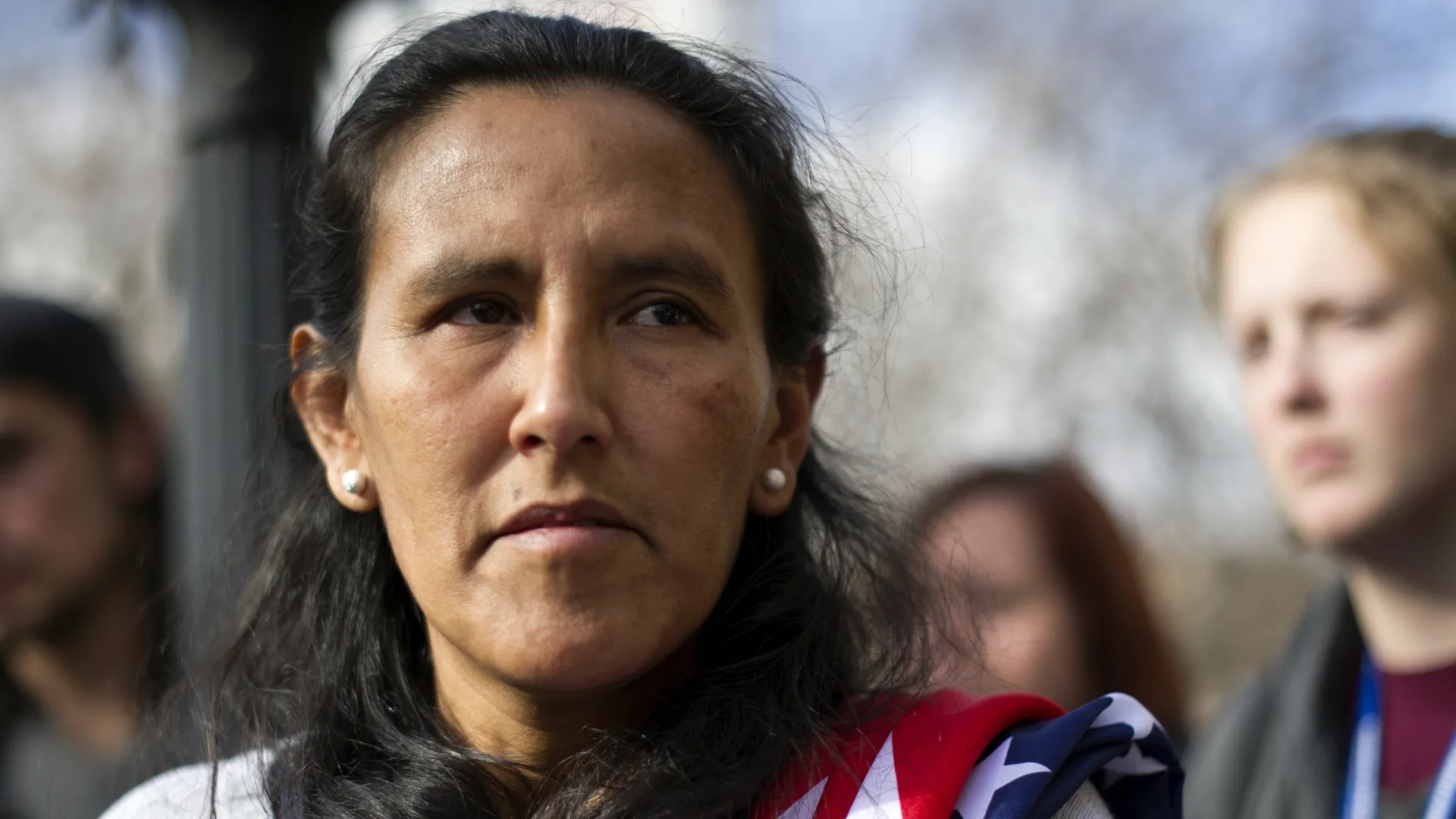Jeanette Vizguerra’s Arrest and the Quiet Coup Against Human Rights.
It began with a sentence, spoken by an ICE agent outside a Target store near Denver: “We finally got you.” That sentence marked not just the abrupt end of a lunch break – but the beginning of a new chapter of political intimidation in the United States. The arrest of Jeanette Vizguerra, a nationally known immigrant rights activist, is more than an administrative act. It is a symbol – of the return of a politics that places humanity under suspicion.
Jeanette Vizguerra is not a random victim. She is a mother. A fighter. A woman who has lived in the U.S. since 1997 without papers, but with unbroken dignity. In 2017, she moved with her three children into the basement of a church to avoid deportation – becoming the face of a resistance the Trump administration never forgave. That Time Magazine named her one of the most influential people in the world was, for many, a sign of hope. For others, apparently, a red flag.
Now she has been taken away. ICE justified the arrest with an old court ruling, calling her a “convicted criminal alien.” But behind that phrase lies nothing but cold cynicism. Jeanette Vizguerra was never a threat – she was a shield. For others, for children, for those whose voices are quieter. That she is now being held at an ICE facility in Aurora, Colorado, is a shock – but not an isolated case.
Repression has long since become a system. Vizguerra’s arrest is part of a wave of crackdowns on people without criminal records, without violence, without any “offense” other than having stayed. Half of those currently in ICE custody have no criminal record whatsoever. And yet the narrative of the criminal migrant is aggressively maintained – because it is needed. As justification. As distraction. As intimidation.
Because it is not only Jeanette Vizguerra or Mahmoud Khalil, the Palestinian activist with legal residency, who is suddenly considered a “security threat.” Or Badar Khan Suri, an Indian lecturer at Georgetown University, accused of “Hamas propaganda” because his wife is a U.S. citizen of Palestinian heritage. It is also people like Jasmine Mooney, a Canadian actress who tripped over a visa issue – and found herself in chains for twelve days. Or Dr. Rasha Alawieh, a Lebanese physician with a valid H-1B visa, who was deported immediately upon arrival in Boston.
The message is clear: it no longer matters if you’ve filed the right paperwork, have a job, a family, a visa. If you are visible – politically, as a migrant, as a dissenter – you are vulnerable.
In Colorado, Governor Jared Polis, Mayor Mike Johnston, and members of Congress have taken a clear stand. Johnston called the arrest a “Putin-style persecution of political dissidents.” A strong phrase – but not an exaggerated one. Because the pattern is known: those who speak out become targets. Those who help become suspect. And those who resist are broken.
The White House is silent. The Department of Homeland Security is silent. And while they remain silent, a dangerous precedent is being set: that even those who have stood in the public eye for years and were protected by official deferrals can now be taken away without warning.
Jeanette Vizguerra was never “the worst of the worst.” She was one of the best. Her arrest is no accident – it is strategy. And if we let this moment pass like just another story in the feed, we lose more than an activist. We lose a measure of justice.
The fight for her release is ongoing. The lawsuit has been filed. But what is at stake goes far beyond her as an individual. It is the question of whether we are – or remain – a country where the courage to act humanely is not criminalized.
Jeanette Vizguerra spent years fighting for others. Now we will fight for her.
(Photo: Jason Connolly/Getty Images)
